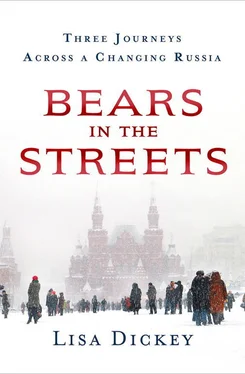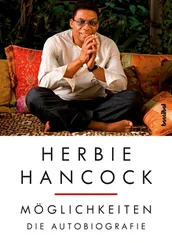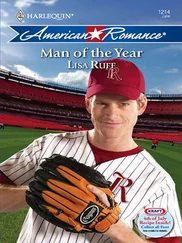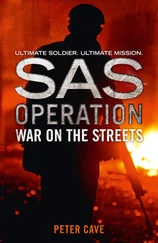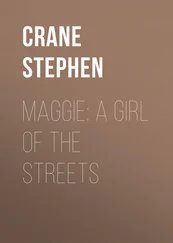With two free hours, I took a taxi to the old synagogue. Not only was the little building still standing, it also had a fresh coat of electric blue paint, clean white trim, and decorative iron Stars of David. Moving closer, I saw signs in the windows announcing that the grounds were protected by video cameras. No one answered my knock, though a plaque out front indicated that it should have been open since 10 a.m. I was disappointed no one was there, but happy to see that the place seemed well kept.
That afternoon, I returned to the new synagogue to meet Rabbi Riss, and to my surprise and delight he spoke English. “I lived in Brooklyn for a couple of years,” he said. “So that helped.” I asked him how he managed to go from bustling New York City to sleepy Birobidzhan, and he replied, “Actually, I was born here.”
Eliyahu Riss was born in Birobidzhan in 1990, and no, that is not a typo: two years into his tenure as the spiritual leader of the Jewish Autonomous Region, the rabbi was all of 25 years old. When he was still a baby, his family—like so many in Birobidzhan at that time—moved to Israel. They spent the next thirteen years there, but in 2004, Eliyahu’s father decided to bring his family back for a visit. Upon seeing the new synagogue and the flowering of cultural life here, he decided to return for good. So at age 14, Eliyahu found himself living once again in the city of his birth.
He left at age 16, moving to Moscow to study at yeshiva. At 20, he went to New York City for two more years of study; at 21 he got married, and at 23 he agreed to become Birobidzhan’s rabbi. “People told me I was crazy to do it,” he said with a wide smile. “But I consider this a mission.” He told me that Boris Kaufman had moved to Israel, and the old synagogue was essentially a museum now.
“We’re having a youth dinner this evening, if you’d like to come,” Rabbi Riss said. “You are still a youth, yes?” he added, smiling again. In fact, he never really stopped smiling: this rabbi radiated bonhomie. “We also have prayer services tomorrow, and the blowing of the shofar. It will be a big day!” I thanked him, and told him I’d see him that evening.
As I walked back to the Vostok, I felt exhausted. My nose had been running all day, and my head felt stuffed with cotton. At the end of my time in Vladivostok, Lusya had been suffering from a cold, and now, as I started sneezing, I knew I’d caught it. I took the elevator to the fourth floor and asked the dezhurnaya for my key, eager to collapse into bed.
“I must inform you that there is no hot water in your room,” she said. “There won’t be any all week. However, there is another room with its own water heater.” Ah, good , I thought. They’re moving me into that one . “Just let us know when you want to bathe,” she said. “And we will let you in to do so.” Apparently everyone on my floor would be using that one bathroom to shower, a revelation that was both irritating and, considering the state of the hotel’s customer service so far, not terribly surprising.
* * *
The young people’s dinner that night was eye-opening. About 15 people, most of whom appeared to be in their twenties, sat at a long table laden with plastic plates of salads, stews, and sliced meat. In honor of Rosh Hashanah, the Jewish New Year traditionally celebrated with apples and honey, the rabbi had brought Jim Beam Honey whiskey. He sat at the head of the table, smiling, making jokes, and talking about how we should feel gratitude for everything God has given us. Down at my end of the table, however, the mood was different.
The rabbi hadn’t introduced me to the group, so no one seemed to know who I was. After sitting silently for the first part of the meal, I decided to make small talk with the guy to my left, a dark-haired, broodingly handsome young man. “So, were you born in Birobidzhan?” I asked.
“Yes, unfortunately,” he answered, then added that he was eager to leave and didn’t care where he ended up, as long as it was anywhere but here. “Where do you live?” he asked. When I told him California, his eyes widened. “That must be nice,” he said, then cocked his head to look at me more closely. “How did you travel all the way here? Do you have money?” I shrugged, unsure where the conversation was going. “It’s expensive to go to America. Maybe you can help me?” I smiled and sipped my Jim Beam Honey. This might turn into a long night.
Once word got out that I was American, the conversation at the table shifted. A guy sitting to my right said, “I was there once. New York. Actually, it was Brooklyn.” He took a bite of beet salad. “There weren’t many Americans in Brooklyn. Just Chinese and black people.”
“Ah,” I said. “Well… those people are actually Americans too.”
“Yeah, maybe,” he said. “But not like the Americans in the center of Manhattan. That’s where they all are.” To say that he was speaking in code would be an insult to the notion of code. For him, “American” equaled “white,” and at this moment, I wasn’t inclined to argue the point.
The talk turned to Ukraine, and the guy on my left got into a disagreement with the guy on my right as to how much the press—both Russian and American—manipulates public opinion. The mood in the room felt prickly, but I wasn’t sure if this was real, or just an unfortunate combination of difficult conversation, feeling out of place, and the ongoing stuffiness in my head. I was glad when the dinner finally ended.
The next morning, I showed up at the synagogue for the prayer service. A half dozen men were in the sanctuary, and one guided me into a small partitioned area with chairs and a coat rack. Ah, yes—I’d forgotten that in Orthodox Jewish services, men and women are segregated. This was disappointing, not only because I’m an agnostic who dislikes random segregation of any kind, but also because I couldn’t see anything beyond the partition walls.
Eventually, both the sanctuary and the women’s area filled up. Rabbi Riss started singing prayers in Hebrew in a strong, resonant voice, and I closed my eyes to let the sound wash over me. Despite the headaches of my visit so far, there was something thrilling about hearing these ancient prayers, especially in a place where people had fought so hard to preserve their Jewish faith.
During a short break, Rabbi Riss gave the congregation, most of whom were elderly, a spiritual pep talk. “Rejoice!” he told them. “Rejoice that you have your health, you can pray, you can move about. You don’t have the life of an invalid. You have everything—yet you say this isn’t life?” He seemed to be speaking to the same malaise I’d sensed at the youth dinner the night before, and I wondered how pervasive it might be in the community these days.
Back at the hotel, my room was stuffy and hot. Mid-September in this part of the world can be quite warm, and the high this week was expected to be in the mid-80s. I lay down on the bed, then noticed an air-conditioning unit embedded high in the wall. Hooray! I found the remote control, turned it on, and sank into my pillow for a quick nap.
When I woke up, my eyes were itching like hell. I went into the bathroom and washed my face—in cold water, since that’s all there was—then went out for an evening walk. I felt the need for some fresh air, both physically and figuratively.
* * *
The next morning, I could hardly get out of bed. I spent the whole day in the hotel, AC blasting, and midafternoon I carried my toiletries down the hallway to use the now-communal shower. The rest of the time, I slept, sniffled, sneezed, and rubbed my eyes. The room had a vague odor of cigarettes and seemed coated in an ancient layer of Soviet dust, but I forced myself to stay in and rest, hoping that by the following morning I’d be well.
Читать дальше
